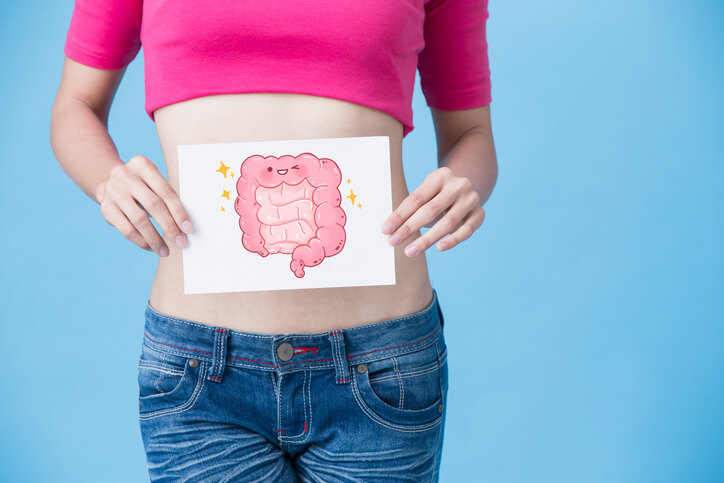
Good Gut Bugs, Happy Colon
By Joy Stephenson-Laws, JD, Founder
When it comes to our overall health and wellness, it may be all about the gut!
When I say “gut,” I am basically referring to the stomach and intestines, where trillions of microbes (more commonly called “gut bugs”) live. This community of bugs is sometimes referred to as the gut microbiome.
Credible evidence suggests that having a diverse gut microbiota is associated with better immunity, healthier weight, lower risk of developing depression, better ability to absorb nutrients from food and even a lower risk of developing cancer.
However, according to one of the lead authors of a recent study on digestive health, who was referenced in this report, “While it's been well-documented that the microorganisms in our gut influence the function of many organs in our body, including the brain, there's less understanding about the role they play in maintaining the healthy functioning of the millions of nerve cells within the digestive system itself.”
Each year, millions of Americans are affected by digestive disorders. For example, irritable bowel syndrome (IBS) reportedly affects between 25 and 45 million people in the United States.
"There is a clear link between the presence of microbes in the colon [which is the large intestine] and the speed at which food moves through the system. If this relationship goes off-kilter it could cause considerable harm," said the lead author of the study.
We have two types of intestines:
- The small intestine, which is connected to the stomach and is responsible for the middle part of the digestion process. (The first part of the digestion process occurs in the mouth when we start chewing our food).
- The large intestine (colon), is where the final stages of digestion occur. “It [the colon] is a large tube that escorts waste from the body,” (Live Science).
Let’s digest (pun intended) a bit more how our gut microbiota assists with digestion.
Having that healthy, diverse community of gut bugs appears to aid in healthy digestion by alerting nerve cells in the intestines when it is time to contract and relax the colon.
Think of these gut bugs as welcomed guests in your small and large intestines who properly orchestrate the activities of your colon when food passes through the digestive tract.
“When such microbes are present, a specific gene called Ahr is activated in intestinal nerves, resulting in healthy contraction and relaxation of the colon (peristalsis). This relationship can be disrupted in cases of intestinal disorders, like irritable bowel syndrome (IBS),” according to the report discussing the study.
With IBS, (where one of the main symptoms is diarrhea), the colon contracts too often. The colon may actually spasm, meaning it moves and tightens uncontrollably after normal activities such as eating, according to Cedar Sinai.
Constipation is just the opposite problem. The colon does not contract often enough, making it difficult to empty the bowels. Chronic constipation has been linked to an increased risk of developing colorectal cancer.
How can we be proactive?
“The levels and types of microorganisms in the gut vary from person to person and are affected by diet and commonly used drugs, such as antibiotics, which often result in abnormal gut contractions,” according to the report discussing the study.
It is extremely important to be responsible about antibiotic use. If not used properly, harmful bacteria may become resistant to antibiotics and harm your gut health. You can be responsible by doing the following:
- Only taking antibiotics when it is absolutely necessary per the advice of a competent healthcare professional.
- Not sharing your antibiotics with anyone.
- Taking a probiotic supplement (per the advice of your doctor) during or after taking an antibiotic.
Proper nutrition is also key when it comes to maintaining a healthy gut microbiome. Eating foods such as fruits, vegetables, whole grains, nuts and legumes, which are rich in fiber and other essential nutrients, is key in maintaining a good community of gut bugs.
You also want to make sure that you are eating foods that naturally contain probiotics. Foods like yogurts, pickles, sauerkraut, kefir and kombucha are all great sources of probiotics. Broccoli may even help with gut health. And don’t forget about prebiotics!
Read here to learn more about nutrition and gut health, including about how having certain nutritional deficiencies may make your gut less healthy.
In addition to antibiotics, other things that might wreak havoc on the gut include consuming artificial sweeteners and drinking too much alcohol.
Finally, might I suggest taking the pH GI Effects test. This test not only provides insight into the bacteria of your digestive system, but also identifies parasites, assesses levels of digestive and absorptive functions, as well as potential issues with gut inflammation and immunology. Anyone with concerns regarding their digestive system should start here.
Don’t just trust your gut. Take care of it!
Enjoy your healthy life!
The pH professional health care team includes recognized experts from a variety of health care and related disciplines, including physicians, attorneys, nutritionists, nurses and certified fitness instructors. This team also includes the members of the pH Medical Advisory Board, which constantly monitors all pH programs, products and services. To learn more about the pH Medical Advisory Board, click here.







